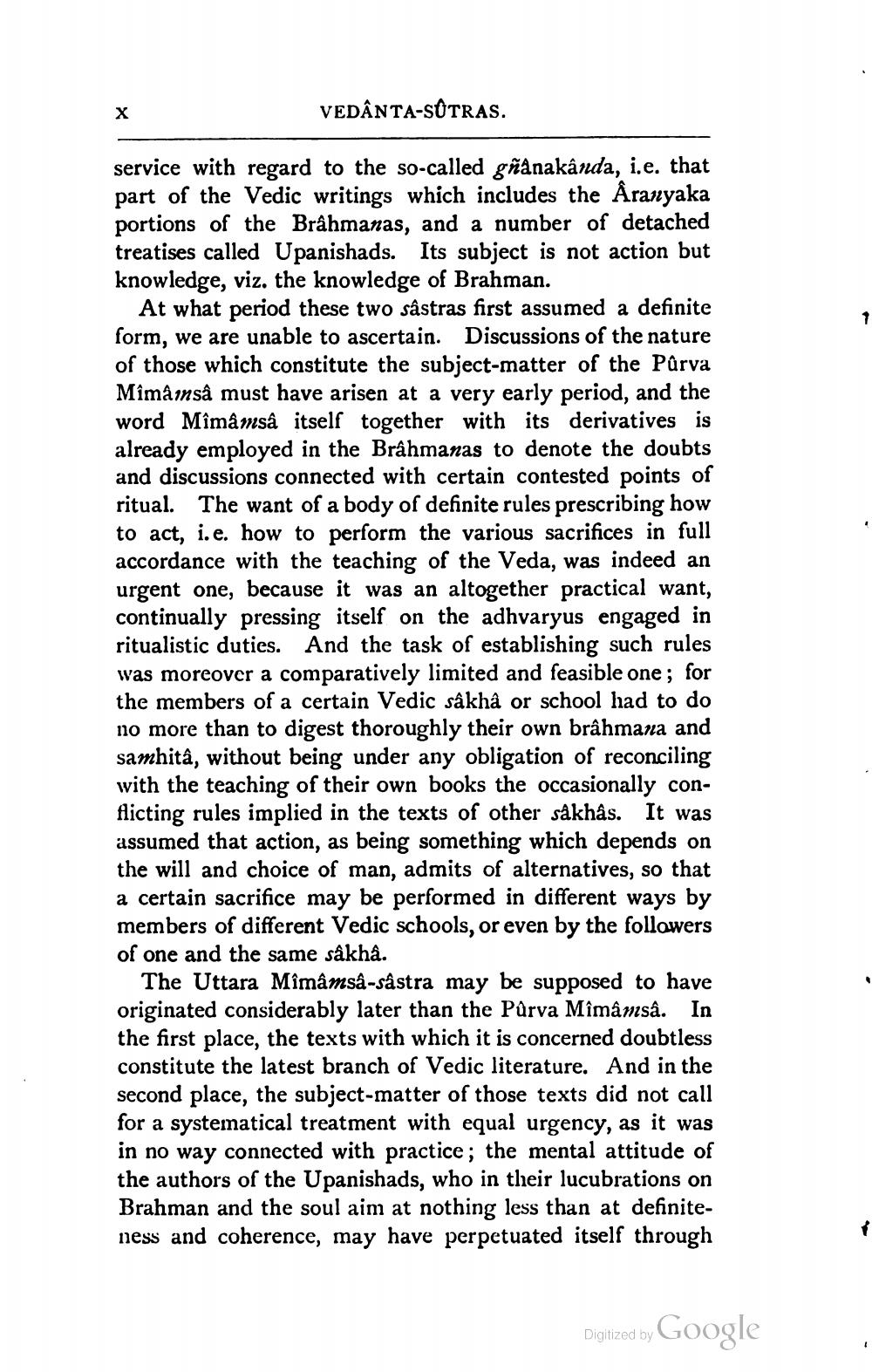________________
VEDÂNTA-SOTRAS.
service with regard to the so-called gñanakânda, i.e. that part of the Vedic writings which includes the Åranyaka portions of the Brâhmanas, and a number of detached treatises called Upanishads. Its subject is not action but knowledge, viz. the knowledge of Brahman.
At what period these two sâstras first assumed a definite form, we are unable to ascertain. Discussions of the nature of those which constitute the subject-matter of the Pûrva Mîmâmnsâ must have arisen at a very early period, and the word Mîmâmsâ itself together with its derivatives is already employed in the Brahmanas to denote the doubts and discussions connected with certain contested points of ritual. The want of a body of definite rules prescribing how to act, i.e. how to perform the various sacrifices in full accordance with the teaching of the Veda, was indeed an urgent one, because it was an altogether practical want, continually pressing itself on the adhvaryus engaged in ritualistic duties. And the task of establishing such rules was moreover a comparatively limited and feasible one; for the members of a certain Vedic sâkhâ or school had to do no more than to digest thoroughly their own brâhmana and samhitâ, without being under any obligation of reconciling with the teaching of their own books the occasionally conAicting rules implied in the texts of other såkhâs. It was assumed that action, as being something which depends on the will and choice of man, admits of alternatives, so that a certain sacrifice may be performed in different ways by members of different Vedic schools, or even by the followers of one and the same såkha.
The Uttara Mîmâmså-sâstra may be supposed to have originated considerably later than the Purva Mîmânisâ. In the first place, the texts with which it is concerned doubtless constitute the latest branch of Vedic literature. And in the second place, the subject-matter of those texts did not call for a systematical treatment with equal urgency, as it was in no way connected with practice; the mental attitude of the authors of the Upanishads, who in their lucubrations on Brahman and the soul aim at nothing less than at definiteness and coherence, may have perpetuated itself through
Digitized by Google
Digitized by




